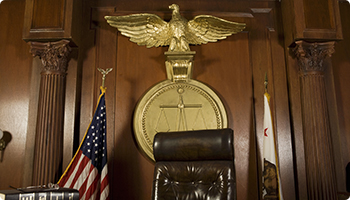- Call Us Today! 212-258-0713 Tap Here To Call Us
Demanding Accountability: Why Congress Must Reclaim Power From The Presidency

As the nation gears up for the inauguration of President-elect, Donald J. Trump, the topic of immigration remains a complex and contentious issue. The multifaceted nature of immigration policy in the United States reflects not only the diverse backgrounds of immigrants but also the varied perspectives on how immigration should be managed. This complexity is compounded by the ongoing lack of congressional action, which raises significant questions about the future direction of immigration policy under Trump’s upcoming administration.
The inaction of Congress has driven many individuals and families into uncertainty, particularly those who are undocumented or seeking asylum. The deferred action programs, such as DACA, have been caught in legal battles, leaving recipients in limbo. Meanwhile, the backlog in visa processing and the complexities of the legal immigration system continue to create barriers for those looking to contribute to the economy and society.
In his first interview after the 2024 election, the President-elect, Donald J. Trump articulated his approach to immigration, emphasizing a phrase strategy. His plans prioritized targeting gang members, followed by individuals with criminal records, and undocumented immigrants. This approach reflects a broader narrative around national security and law enforcement, appealing to constituents who are concerned about crime and illegal immigration.
The notion that citizens should hold Congress accountable and ensure it performs its duties is a vital aspect of democratic governance. The concentration of power in the executive branch, particularly in immigration policy, raises concerns about checks and balances. When presidents wield significant authority without adequate legislative oversight, it can lead to policies that may not reflect the will of the people or the complexities of immigration issues.
We need to start insisting that Congress does its job and begins rolling back the enormous power we are conferring on presidents who are not the best we do.
Here are some points to consider:
1. The U.S. Constitution establishes a system of checks and balances designed to prevent any one branch of government from becoming too powerful. By encouraging Congress to assert its authority, citizens can help maintain this balance and ensure that policies are created through a more democratic process – Checks and Balances.
2. Citizens have a role in advocating for their beliefs and values, particularly when it comes to significant issues like immigration. Engaging with representatives, participating in town halls, and voicing opinions can influence the legislative and encourage Congress to take action.
3. Immigration is a multi-faced issue that involves humanitarian, economic, and social considerations. A more balanced approach – such as community organizations, businesses, and affected individuals – can lead to more effective, and human policies.
4. While immediate action may focus on enforcement and removal of aliens, there is a need for a comprehensive immigration reform that addresses the root causes of unauthorized immigration, pathways to legal status, and protections for vulnerable populations. Citizens can advocate for these broader solutions to create a more just and effective immigration system.
As President-elect Donald J. Trump prepares to take office on January 20, 2025, for a second time, the lack of congressional action on immigration poses both a challenge and opportunities. Trump’s previous administration was marked by significant changes to immigration policy, often through executive actions that bypassed Congress. This approach may be revisited, as the President-elect faces a congress that may remain divided or unwilling to cooperate on immigration reform.



